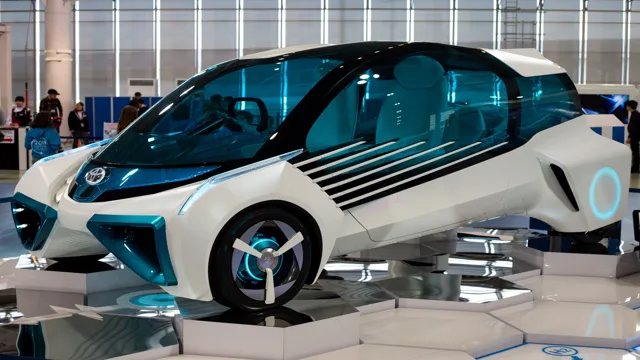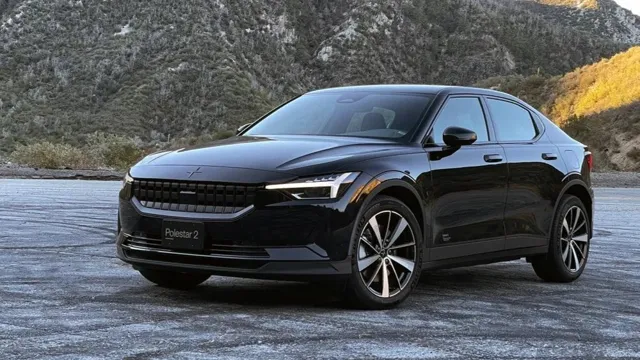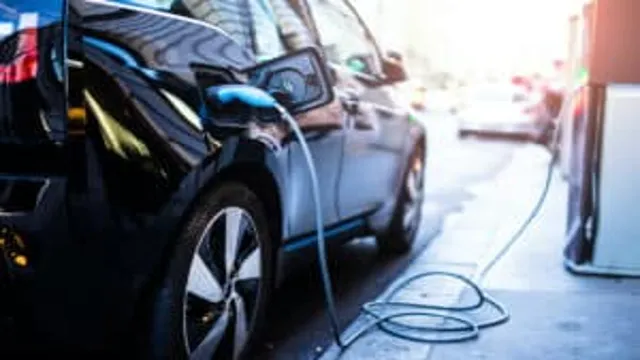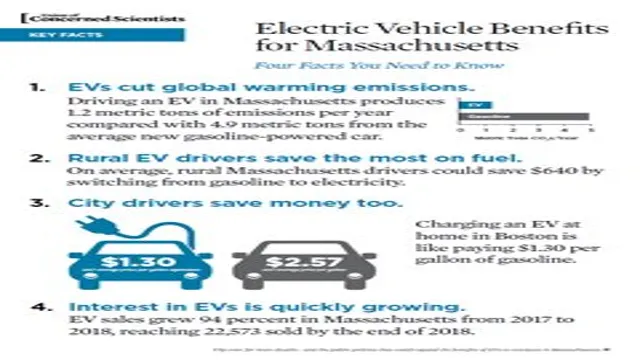Revving Up Country Benefits: Why Switching to Electric Cars is the Future
Are you curious about the benefits of electric cars for countries? As the world continues to shift towards more sustainable and environmentally-friendly practices, electric cars are becoming an increasingly popular option. There are numerous benefits to this technology, not just for individual consumers but for entire countries as well. From reducing carbon emissions to improving health and innovation, electric cars can positively impact economies and societies in countless ways.
In this blog, we will explore the various country benefits of electric cars and why they are becoming an essential part of the future. So buckle up and get ready to learn about how electric cars are revolutionizing transportation and the world as we know it!
Environmental Impact
One of the biggest environmental benefits of switching to electric cars is a reduction in greenhouse gas emissions. With traditional gas-powered vehicles, the internal combustion engines produce harmful emissions that contribute to air pollution and climate change. By contrast, electric vehicles emit no tailpipe emissions and have significantly lower lifecycle emissions than gasoline or diesel-powered cars.
This means that if a country completely switches to electric cars, it can significantly reduce its carbon footprint and contribute towards a healthier planet by reducing greenhouse gas emissions. In addition to this, electric cars can also help to decrease noise pollution, as they tend to be quieter than traditional cars. Given these benefits, governments around the world are offering incentives to encourage more people to switch to electric cars, including tax incentives, rebates, and subsidies.
All in all, the switch to electric cars is a win-win situation for both the environment and the economy, providing improved air quality and a healthier planet, while also creating new job opportunities in the clean energy sector.
Reduced Emissions
Reduced emissions are becoming increasingly important in today’s society, as we strive to minimize our impact on the environment. One of the significant contributors to emissions is transportation, through vehicles powered by fossil fuels. However, with the introduction of electric vehicles, emissions are reduced significantly, as they do not produce harmful gases.
By transitioning to electric cars, we can collectively reduce our carbon footprint and improve the quality of the air we breathe. Moreover, companies are investing in renewable energy sources, such as solar and wind power, which reduces fossil fuel dependency and the emissions that come with it. By adopting clean and sustainable technologies, everyone can make a significant impact on the environment and reduce our carbon footprint one step at a time.
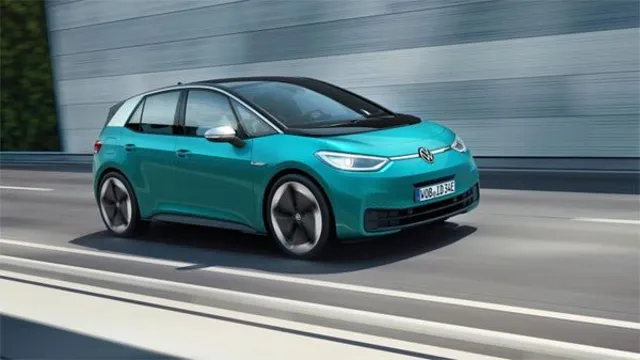
Less Air Pollution
Air pollution has a devastating effect on our environment, even affecting the health of individuals who inhale it. Fortunately, advancements in technology have made it possible to reduce air pollution significantly. With the use of electric cars, clean energy sources, and renewable energy, we are now able to minimize air pollution.
For instance, electric cars emit zero pollutants, making them environmentally friendly. Renewable energy sources like wind turbines and solar power generate energy without creating pollution. The use of clean energy not only reduces air pollution but also contributes to a sustainable future.
By these means, we can maintain a cleaner, more sustainable, and healthier environment for ourselves and the future generations to come.
Financial Benefits
Switching to electric cars can bring numerous financial benefits to countries. One of the most significant benefits is reduced oil dependency, which can lead to lower fuel costs and decreased vulnerability to oil price fluctuations. Moreover, electric vehicles have lower operating costs, as they require less maintenance and repairs than traditional cars.
This can save drivers a considerable amount of money over the lifetime of the car. Additionally, governments can use financial incentives, such as tax breaks and rebates, to encourage citizens to purchase electric cars. These measures can help boost the local economy, as the demand for electric vehicles increases, leading to the creation of new jobs in manufacturing, installation, and maintenance.
Furthermore, switching to electric cars can help countries reduce their carbon footprint, improving air quality and public health. Overall, the switch to electric cars can bring significant financial and environmental benefits to countries that implement it.
Lower Fuel Costs
Lower fuel costs are a huge financial benefit of owning a car. With the price of gasoline constantly fluctuating, it’s important to find ways to save money on fuel whenever possible. One way to save is by choosing a car that gets good gas mileage.
This can be achieved by purchasing a hybrid or electric car, or by choosing a traditional car with a high MPG rating. Another way to save on fuel costs is by driving smarter. This means avoiding sudden stops and starts, driving at a consistent speed, and avoiding idling for long periods of time.
By driving smarter, you can improve your car’s fuel efficiency and save money on gas. Overall, lower fuel costs can help you save money in the long run and improve your financial stability.
Tax Incentives
Tax incentives can have significant financial benefits for businesses. These incentives are designed to encourage certain behaviors, such as investing in renewable energy or hiring new employees. One of the most common forms of tax incentives is a tax credit.
This is a dollar-for-dollar reduction in the amount of taxes owed, making it a very valuable tool for businesses. Additionally, tax incentives can also take the form of deductions or exemptions, which can reduce a company’s taxable income and, ultimately, their tax bill. Businesses can also benefit from tax incentives related to research and development, which can help offset the high costs of innovation.
Overall, taking advantage of tax incentives can be a smart financial strategy for businesses looking to reduce their tax burden and free up more money for investments and growth.
Reduced Maintenance Expenses
One of the most significant financial benefits of reducing maintenance expenses is the long-term savings it provides. When a company invests in quality equipment and implements best practices for maintenance, it can reduce the frequency of repairs and replacements, leading to less downtime and lower overall costs. For example, a business that regularly inspects and cleans its HVAC system can avoid costly breakdowns and extend the life of the equipment.
Similarly, properly maintaining vehicles in a fleet can reduce the need for expensive repairs and replacements. Over time, these savings can add up and positively impact the bottom line. By prioritizing maintenance and investing in quality equipment, businesses can achieve more reliable operation, lower expenses, and greater profitability.
Energy Security
One of the biggest benefits a country can reap from switching to electric cars is enhanced energy security. Many countries rely heavily on imported oil, which means they are at the mercy of big oil producers and are subject to volatile prices and potential shortages. By embracing electric vehicles (EVs), countries are essentially taking control of their own energy supply.
EVs can be powered by electricity generated from various sources, including renewable energy like wind and solar. This means that countries can diversify their energy mix, reduce their dependence on fossil fuels, and potentially even become self-sufficient in terms of energy production. A shift to EVs can also help countries become more resilient to global energy shocks and conflicts.
Furthermore, the development of a domestic EV industry can create jobs and boost economic growth. Overall, transitioning to electric cars provides numerous benefits for a country, including greater energy security, environmental sustainability, and economic prosperity.
Reduced Dependence on Foreign Oil
Reduced Dependence on Foreign Oil When it comes to energy security, reducing our dependence on foreign oil is a top priority. It’s not just about economic factors; it’s about being able to rely on a stable and secure supply of energy. We’ve seen in the past how political instability and conflicts in oil-producing regions can have significant impacts on global energy markets, leading to price spikes and supply disruptions.
By reducing our reliance on imported oil through measures such as increased domestic production, alternative energy sources, and energy-efficient technologies, we can enhance our energy security. This not only benefits the economy but also helps to protect against potential energy-related crises in the future. Ultimately, achieving energy security requires a multifaceted approach that balances the needs of consumers, businesses, and the environment.
Increased use of Renewable Energy
Renewable energy is becoming increasingly important in today’s world for a plethora of reasons. One of the primary reasons for this is energy security. It’s no secret that fossil fuels, which have been powering the world for decades, are finite resources that will one day run out.
By relying on renewable energy sources like solar, wind, hydro, and geothermal power, we can reduce our dependence on finite resources and ensure that we have access to reliable energy sources for generations to come. This increased use of renewable energy not only helps secure our energy future but also has numerous environmental benefits, such as reducing greenhouse gas emissions and improving air quality. Additionally, as technology advances and the costs of renewable energy continue to decrease, it becomes more economically feasible to make the switch to renewable energy sources.
By making this transition, we can create a more resilient and sustainable energy system that benefits both people and the planet.
Future of Transportation
Switching to electric cars can bring a multitude of benefits to any country. One clear advantage of adopting this technology is the reduction in carbon emissions, leading to cleaner air and a healthier environment. Additionally, electric cars often have lower running costs, requiring less maintenance and no fuel, which can save individuals and businesses money in the long run.
There may also be economic benefits for the country, such as the creation of new green jobs in the manufacturing and maintenance of electric cars. Additionally, as technology continues to improve, electric cars are becoming more affordable and accessible, making it easier for the average person to make the switch. Overall, the benefits of switching to electric cars are clear and numerous, offering a sustainable and cost-effective solution for modern transportation needs.
Conclusion
So there you have it, folks. The benefits of switching to electric cars aren’t just limited to individual savings on fuel costs. Our entire country stands to benefit from reduced air pollution, improved public health, and a stronger economy.
Plus, let’s not forget about the fun and excitement that comes with driving a sleek, futuristic car that produces zero emissions. It’s time to charge up our batteries and make the switch to electric vehicles for a brighter, cleaner, and more electrifying future.”
FAQs
How does a country benefit from switching to electric cars?
There are several benefits of switching to electric cars, such as reducing air pollution, decreasing dependence on fossil fuels, and improving public health.
Are there any financial incentives for individuals to switch to electric cars?
Yes, many countries offer financial incentives such as tax credits, rebates, and reduced toll fees for individuals who switch to electric cars.
What is the current state of electric car infrastructure in the country?
The current state of electric car infrastructure varies from country to country, but many places have implemented charging stations in public places such as parking lots, malls, and rest areas.
How do electric cars compare to gasoline cars in terms of maintenance costs?
Electric cars generally have lower maintenance costs than gasoline cars due to fewer moving parts and less frequent oil changes. However, battery replacement costs may be a consideration in the long term.

